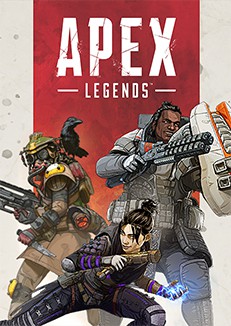Beginner’s Survival Guide: Mastering Your First Drops in Apex Legends
The first drop in an Apex Legends match is arguably the most important moment in any given round, especially for beginners who are still adjusting to the fast-paced, high-stakes nature of the game. From the moment the dropship begins its flight path across the map, players are given the opportunity to carve out the course of their match. For new players, understanding the significance of drop timing and location can mean the difference between a quick death and a fighting chance at survival. The goal of the initial drop is not just to find weapons and gear quickly, but to also land in a position that offers tactical advantages and sufficient resources while avoiding overwhelming early confrontation. Beginners often make the mistake of following others too closely and dropping into highly contested zones like Fragment East or Hot Drops marked by high-tier loot markers. These locations are tempting because of their promise of strong loot, but they also attract half the lobby and often result in chaotic gunfights within seconds of landing. For newer players who are not yet confident in their mechanical skills, it’s far more beneficial to choose quieter locations just outside of high-traffic zones. These peripheral drop spots often offer enough loot for a squad and allow players to engage in early fights on their own terms or rotate freely toward better loot later.

Another aspect beginners frequently overlook is the importance of drop trajectory and timing. When preparing to drop, squads must take into account the angle and distance of their desired landing spot relative to the dropship’s path. Apex Legends allows players to fly a considerable distance if they use a wave-diving motion while falling—diving steeply, then leveling off and repeating. Mastering this technique allows squads to reach optimal landing zones further away from the ship’s path while arriving ahead of other teams attempting the same. For new players, practice in the Firing Range or non-ranked matches can help improve this timing and control, giving them a small but meaningful edge. Another trick is to let the Jumpmaster—whoever is automatically assigned control of the squad's drop—guide the fall, but always be prepared to take over if the decision seems poor or panicked. Jumpmasters should call their drop early, communicate with teammates, and avoid last-second decisions that can cause hesitation or land the squad in a dangerous half-looted area. Proper communication in the drop phase is the first step toward solid squad coordination and survival. Using pings to indicate loot, danger, or path changes during the fall is a small but impactful habit that builds good team cohesion from the very start.

 100
Play
100
Play
Lastly, even in the air, situational awareness plays a crucial role. Players should always scan nearby teams during the fall to determine how many squads are landing in the same area or nearby zones. This allows your team to make last-second adjustments, splitting off to an unoccupied location or changing trajectory to secure a better landing. Apex’s third-person skydiving perspective makes it easy to keep tabs on surrounding enemies during descent, and beginners should train themselves to be constantly scanning their environment instead of tunnel-visioning their own fall path. When your team lands, prioritize grabbing any weapon—even a Mozambique or P2020 is better than no weapon—and be ready to defend your position. While looting, make sure not to overextend by chasing loot crates deep into contested buildings. Try to loot quickly, move together, and maintain visual contact with teammates. In the early game, spacing is everything. If you can hold a building as a squad and fend off an enemy team’s push while gearing up, you’re already halfway to dominating the midgame. The early stages of an Apex Legends match are about control, confidence, and preparation. Understanding the mechanics of dropping, choosing smarter zones, and coordinating as a team gives beginners the solid foundation they need to survive past the first ring.


